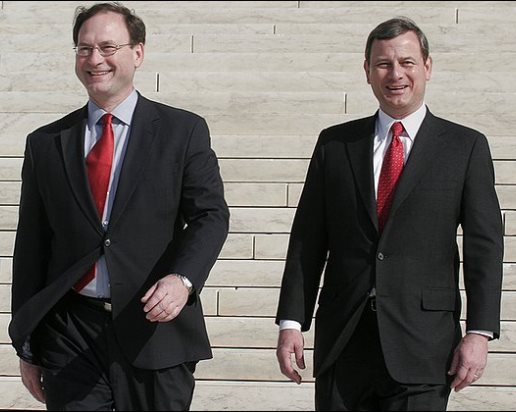What happened in Fulton

The outcome today in Fulton v. Philadelphia is the best outcome that liberals could have expected out of this particular Court. Philadelphia will have to refer foster child cases to Catholic Child Services despite their discriminatory policies, but 1)this will not stop any same-sex couple from being able do adopt (no same-sex couple has ever asked for certification from CCS and there are nearly two dozen agencies to choose from) and 2)the Court declined the invitation to overrule Employment Division v. Smith. Roberts, going back to the language Scalia used in Employment Division to distinguish it from Sherbert, held that because the Commissioner of HHS had the discretion to make exceptions to the city’s nondiscrimination policy the rule was not “generally applicable” and hence triggered strict scrutiny rather than the much more latitudinarian Employment Division standard.
Strategically, as Mark Joseph Stern says, this makes sense for the liberal faction:
Despite Roberts’ dubious logic, it’s easy to see why the three liberal justices signed onto his opinion. First and foremost, the decision does not imperil most LGBTQ non-discrimination laws, which usually lack an exception that would trigger strict scrutiny. (When they do contain exceptions, it’s often for religious conduct.) Roberts confirmed that ending anti-gay discrimination is a “weighty” state interest, quoting Masterpiece Cakeshopfor the proposition that “our society has come to the recognition that gay persons and gay couples cannot be treated as social outcasts or as inferior in dignity and worth.” So lower courts can continue to uphold run-of-the-mill civil rights laws that protect LGBTQ people. Moreover, as Gorsuch noted in dissent, Philadelphia can get around this decision by abolishing discretion at every stage of the foster care process.
In short, it was likely clear from the start that the six conservative justices wanted to rule for CSS somehow. To limit the damage, the liberal justices signed onto Roberts’ narrow opinion, which hands a symbolic victory to religious freedom while deciding almost nothing. Fulton is Masterpiece Cakeshop redux: Once again, the Supreme Court has dabbled in the culture wars without handing a clear win to either side.
This is still not a stable equilibrium — a majority of the Court is clearly hostile to Employment Division and will presumably keep chipping away at it with the shadow docket. But it lives another day. And I did enjoy ACB dismissing the strained law office history in the Alito and Gorsuch concurrences in a couple of sentences:

One other interesting thing is that while Roberts’s opinion for the Court is a terse 14 pages, Alito’s concurrence urging Employment Division to be overruled blah-blah-blahs for 77 mind-numbing pages while Gorsuch adds another 11 (and, as Stern observes, the latter definitely scores some points against Roberts’s bullshit-minimalism, but you go with the best majority opinion you have, not the one you want.) I wonder if this is another Casey or Sebelius in which Alito was assigned the opinion for the Court but some of the marginal justices got cold feet, or if Alito just wanted to make a really strong statement against Employment Division. Either way, clerks should leak the details to Paul or Joan Biskupic immediately.


